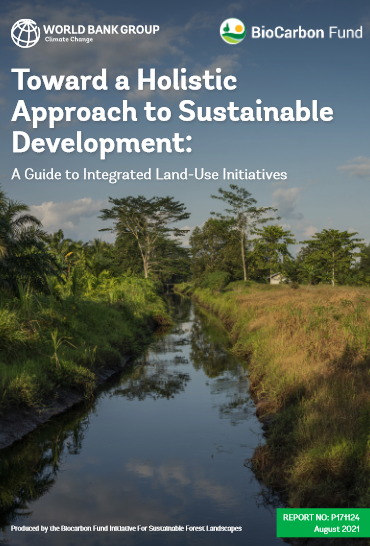World Bank convenes global experts to advance coordinated approaches to integrated land use
The World Bank’s BioCarbon Fund Initiative for Sustainable Forest Landscapes (ISFL) hosted two global webinars in January designed to share some of the key findings and best practices highlighted in its recently released report “Toward a Holistic Approach to Sustainable Development: A Guide to Integrated Land-Use Initiatives”.
These webinars brought together more than 500 integrated land-use practitioners, community representatives, private sector actors, and academics from 90 countries to open the conversation on global best practices and lessons learned from more than 150 integrated land-use initiatives assessed in ISFL’s report.
The webinars were designed to cover the eight main integrated land-use themes identified in ISFL’s report through the presentation and analysis of promising case studies from around the world. The first webinar on January 19th focused on multistakeholder engagement, environmental and economic dynamics of integrated land use, as well as monitoring, evaluation, and learning. Presenters and panelists included policy experts and academics from Scotland and Taiwan, along with representatives from the UN Food and Agriculture Organization, EcoAgriculture Partners and Rainforest Alliance.
The second webinar on January 26th covered the broad strokes of boundary setting, land tenure, financing strategies and cross-sectoral coordination of integrated land-use initiatives. Presenters and panelists discussed case studies from Colombia, the DRC, Indonesia, and Tanzania, and represented organizations including CIFOR and the World Bank.
“Integrated land-use initiatives are complex and ambitious -- they call for global collaboration, the breaking of siloes, and big-picture thinking bolstered by keen attention to the needs of specific landscapes,” said Roy Parizat, ISFL Fund Manager, who presented closing remarks during the webinars. He added, “ISFL’s new report is a first step to catalyze a broader conversation where key actors collaborate, share best practices, and realize the full potential of the integrated land-use approach.”
A coordinated approach to integrated land use
Integrated land-use initiatives challenge practitioners to look beyond traditional sectoral development projects and engage with the complexity of entire landscapes to tackle some of the biggest challenges of our time: poverty, climate change, biodiversity loss, and deforestation, among others. Reflecting the promise of this approach, the number of initiatives has grown substantially over the last decade or so, leading to a wide range of approaches and a large amount of innovation. However, there is limited consensus on best practice in integrated land use.
The goal of ISFL’s recently released report and accompanying resource and case studies booklet is to provide a guide for practitioners who are looking to implement integrated land-use approaches or make existing initiatives more holistic, and facilitate a more coordinated global approach to sustainable land use in the years to come.
As a complement to ISFL’s integrated land-use report and webinar series, ISFL has launched a new dedicated section of its website to continue taking stock of how integrated land-use initiatives are developing around the world. This new website section also provides a growing compendium of resources for practitioners.

